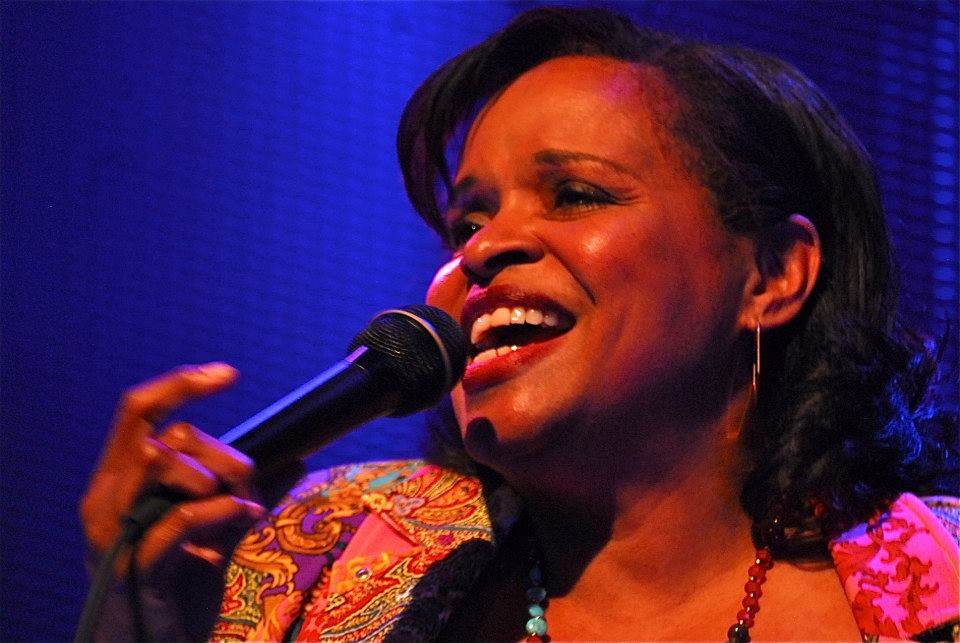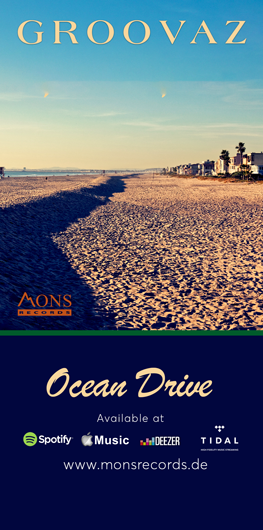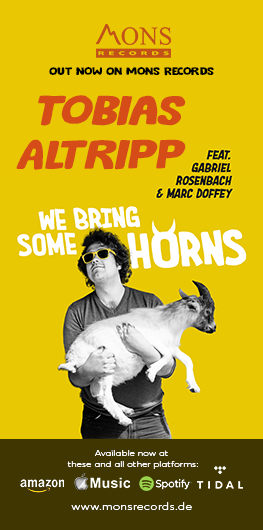Deborah J. Carter’s latest album called ‘Diggin’ the Duke!’ was released in Europe last month. From ‘Petite fleur Africaine’ to ‘It don’t mean a thing (if it ain’t got that swing), this record provides new take on Duke Ellington’s music. Carter, an American jazz vocalist, now based in the Netherlands, recorded this album with Leo Bouwmeester (Piano), Mark Zandveld (Bass), Gunnar Graafmans (Drums) and with special guest appearances from Emiel Wienholts (sax) and Efraim Trujillo (sax).
Carter premiered her latest release in the Canary Islands (Spain) in May at the Third International Jazz Festival of La Laguna, Tenerife. While there, I had the chance to catch up with Deborah for an interview.
Don’t miss “Diggn’The Duke” portrayed from Deborah Carter’s perspective; she nailed it!
Hector Martin: How did your singing career start? Did you start when your were a young girl? Was it part of your family life?
Deborah Carter: I sang in the church choir, and my mother was always the choir director. It was a church whose music was classical hymns though, so any exposure I had to gospel was from other sources: the television, the occasional gospel concert, or my mother’s Mahalia Jackson albums.
Actually, everyone in my family tree – on my mother’s side- can either sing or play an instrument, but I’m really the first known professional musician in the family history.
HM: You came to perform in the third International Jazz Festival of La Laguna. How did this possibility come about?
DC: I was contacted via Facebook – which happens more and more often, to my surprise. Social media is becoming a very useful resource for making interesting contacts.
HM: Do you know any Canarian musicians? And Spanish musicians? Do you remember anyone in particular?
DC: When I was living in Spain I worked with many many great Spanish musicians from every corner of the country. I’m still in contact with many of them, almost daily, via social media.
The quality of the musicians in Spain, bit by bit, is getting more attention on an international level and I am very proud to have them as friends and colleagues.
A couple of years ago, I met Sebastian Gil Armas, a great trumpetist , professor at the Conservatorio Superior de Musica de Canarias, and artistic director of the marvellous Gran Canaria Big Band. The concert I had with that ensemble was one of the best I’d ever had with a big band. They were 17 or 18 musicians, all very hard-working and dedicated to their art. The rehearsals we had for two Christmas concerts – under the direction of Francisco ‘Latino’ Blanco (from Alicante) were some of the most intense that I had ever experienced. My hat goes off to them!
HM: Who did you perform with at the festival? Could you tell us about your band?
DC: I travelled to Tenerife with my husband and bass player, Mark Zandveld, there we joined up with three talented Canarian musicians: Akior García: drums, José Alberto Medina: Keyboards and Miguel Manescau: Electric Guitar
In recent years I have performed in Spain with a combination of musicians I brought from the Netherlands and musicians from Spain and some really wonderful music has been made because of that spontaneous fusion of the two distinct elements.
HM: What songs did you play in the concert?
DC: Our audience heard songs from my jazz-Beatles tribute album, some songs from my last album, “Blue notes and Red Shoes”, as well as a sneak peek from my new album released this year -“Diggin’ the Duke” – my modern tribute to Duke Ellington.
HM: Yes, I heard you were preparing a new album titled ‘Diggin’ the Duke’ and it has come out on Dot Time records. How did the contact with this record company come about?
DC: The first album of the group ‘Zandscape’, from my husband, Mark Zandveld, was released on that label and it was a natural decision to follow suit.
HM: It’s about a tribute to the great Duke Ellington. Do you remember how you discovered this genius who they say had more than 2000 compositions?
DC: Ellington was always in the picture from the moment I decided to become a jazz singer and musician. I believe one of the first songs I learned of his was “Satin Doll”. Ellington was not only a great composer he was constantly exploring new ideas and new concepts and ways of interpreting composition he had already made. I remember that he even recorded a tribute album of Walt Disney’s “Mary Poppins”, in Ellington style. In that sense I am following Ellington’s tradition of reworking compositions, always with the intention of incorporating one’s own personal sound.
HM: What advice would you give a young person who’d like to become a professional singer? Is education important?
DC: I think in any field, that if you love the subject enough, you want to know as much about it as possible. Education is important but even more than that is having a insatiable curiosity about every style, every concept, every instrument involved in the creation of music; become a ‘student for life’ and never stop growing.
As well, for any young musician, it’s important to learn a multiple of music-related skills to be able to have continual functionality in today’s market. Then, in ‘complicated’ times like these, you can rely on your talents as a musician, composer, arranger, teacher, advisor, etc.
Last modified: July 15, 2018











